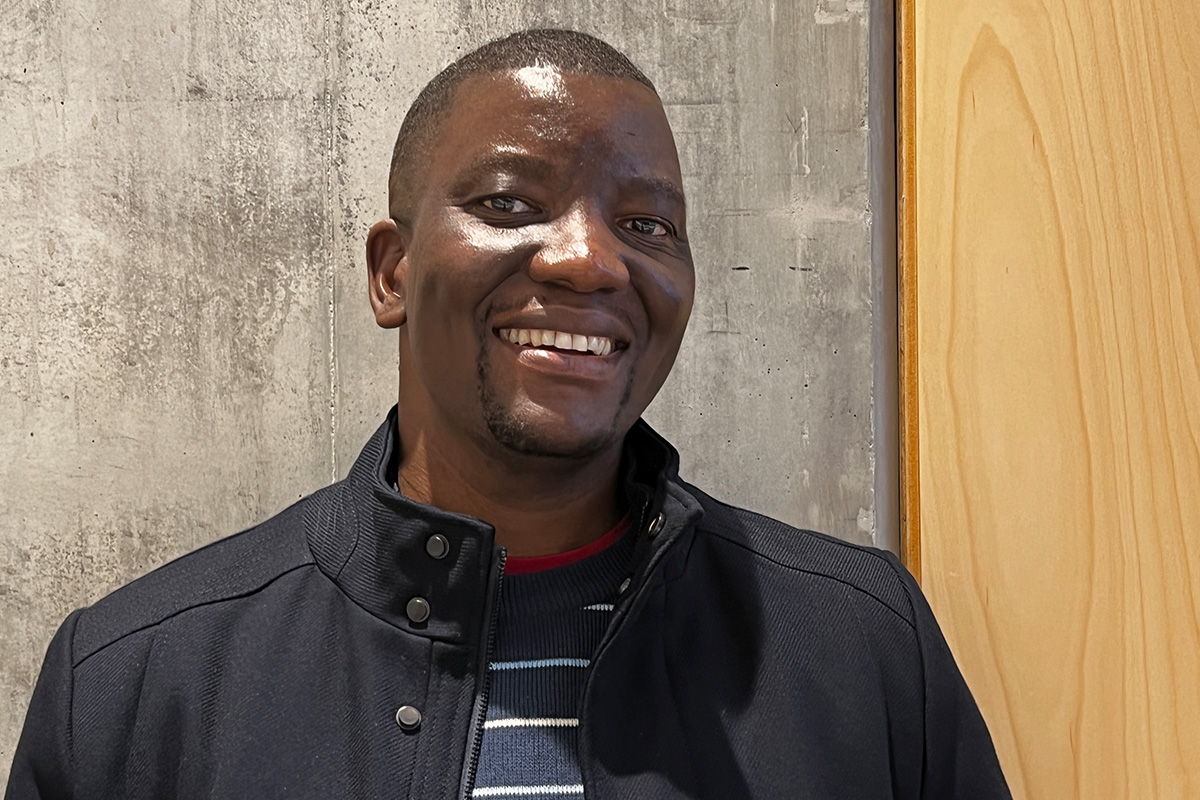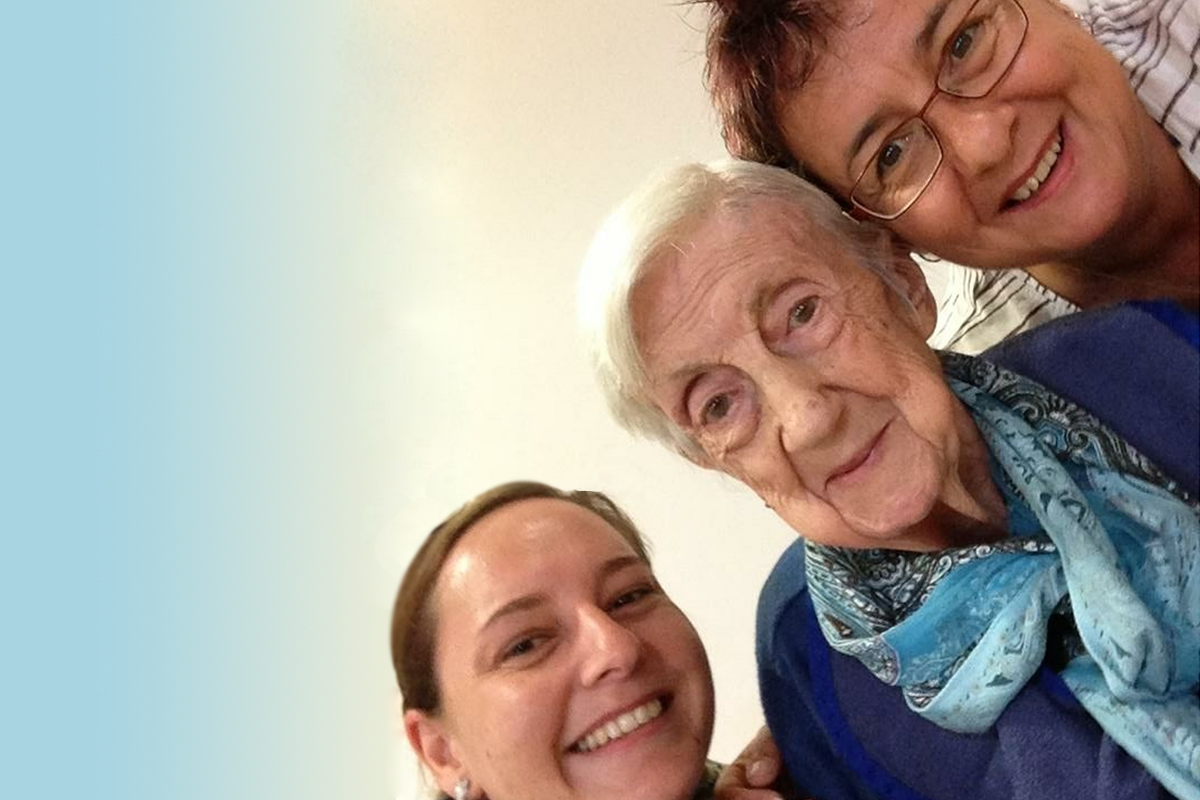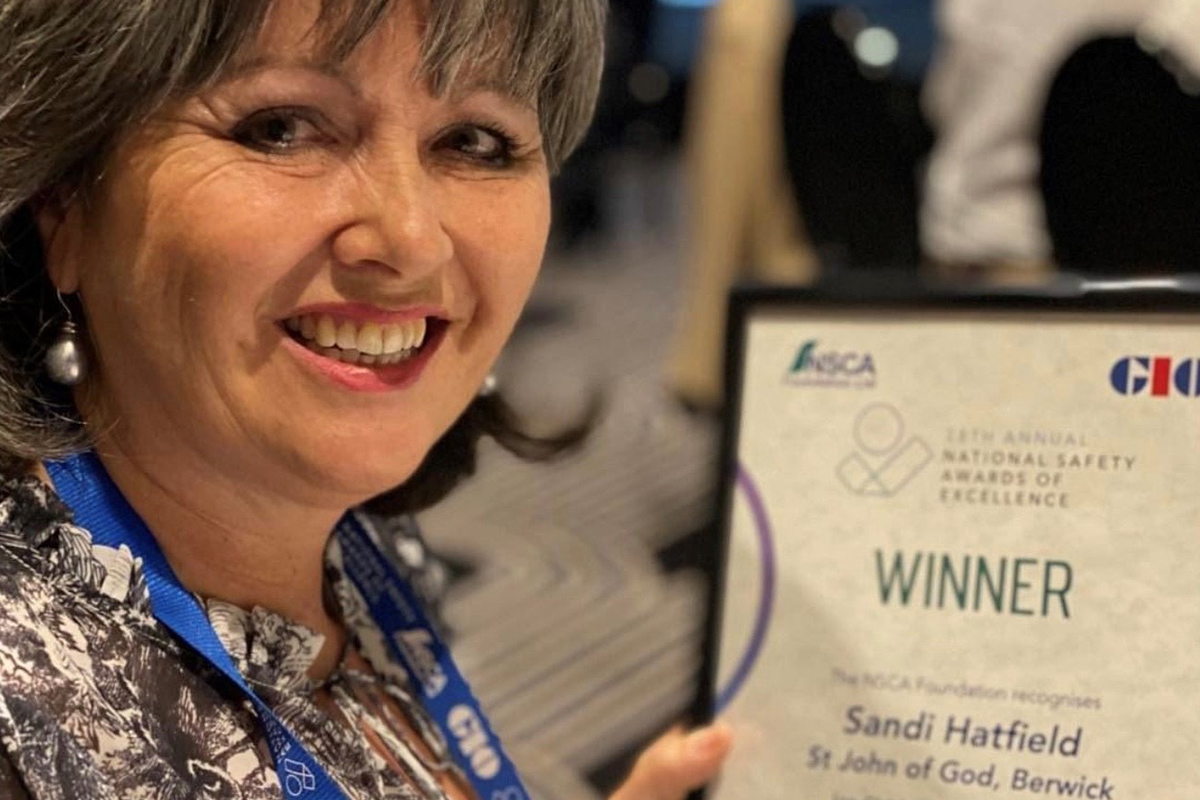
Allington Gono at ANMF (Vic Branch). Photo: Melanie Sheridan
‘At work at my workplace, I’m known for using the word “brilliant” all the time. If I don’t use that word, people will be worried.’
Allington Gono, clinical nurse specialist at Ballarat Base Hospital cardiac catheterisation laboratory, is acutely aware that his patients are likely to be dealing with anxiety as well as heart problems, and that he is uniquely positioned to help them through an often-overwhelming process.
‘That’s the kind of person I try to be,’ he says. ‘So there’s a lot of jokes. I normally start by asking the patient where they come from, which suburb, and nine times out of 10 I’ll know their postcode. I know a lot of postcodes in my head – if that knowledge could translate to financial freedom, I think I’d be set,’ he adds with a laugh.
Allington might just have a photographic memory. He certainly has a happy and easy-going personality. He puts both to good use, to help his patients and his colleagues.
Total recall
Born in Zimbabwe and trained in the UK as part of Project 2000, Allington began his career in the NHS in Sheffield in 2003. He initially worked in a cardiology medical ward before transferring to the cath lab, where he’s worked since 2005.
In 2010 he immigrated to Australia – in search of space for a home with a large garden in which to grow vegetables. Before embarking, however, he ‘studied the EBA almost inside out’. And not just the Victorian public sector EBA, but those from other states as well as several private EBAs. And the information stuck.
‘Everybody was shocked because they’d worked there for years and had never claimed a cent. But here was somebody freshly arrived from England coming and claiming $320.63.’
He realised his encyclopaedic knowledge of various EBAs could be beneficial when he used it to question a decision at his first local employer. ‘Because we do emergency calls in the cath lab,’ he explains, ‘there is a clause in the EBA that says if you install a landline phone [in your home], you need to get paid the installation costs and the ongoing monthly rental.
‘So I took my bill – I still remember it was $320.63 even though it was in 2012 – and gave it to the director of nursing and said “do you mind please paying this?” They replied “no, we don’t pay that” so I said “unfortunately yes you do. Page number so and so of the EBA.” So the $320.63 was fully paid. And everybody was shocked because they’d worked there for years and had never claimed a cent. But here was somebody freshly arrived from England coming and claiming $320.63.’
Clauses and conferences
With all of these ‘clauses and the like’ in his head, Allington decided he should represent himself and his colleagues in some way. ‘I realised that I needed to be making sure that people are paid their entitlements,’ he says. So in 2015 he became a Job Rep, and began officially advocating for his colleagues and staff. He’s been to every delegates conference since, and is pleased that ‘after years of motions, the current EBA has a lot of cath lab specific clauses.’
He mentions the removal of references to the PMU (power mass unit) – an archaic term that nobody knew, making it all but impossible to determine the allowance that went with it – and adding the lead apron allowance, as well as improved overtime entitlements, including paid breaks.
‘Those little things are very big.’
He’s also full of praise for the delegates conference process in relation to more universal measures. ‘At the biennial conference in 2019, there was a presentation about a superannuation gap between men and women,’ he recalls. ‘It was partly attributed to the fact that some people who earned less than $450 [a month] were not getting paid any super. I remember after finishing at the conference, we went to dinner and somebody from the group said “What about me putting up a motion [to lobby] to abolish that $450 rule?”
‘And before we knew it, we’d all voted yes. And now that $450 limit is disappearing,’ he says, in reference to the fact that from 1 July 2022, even if an employee only earns $20 in a month they will still get super. ‘Those little things are very big to me,’ he adds.
Belinda Morieson program
Prior to the 2022 delegates conference, Allington spent a few weeks embedded with ANMF (Vic Branch) staff in Melbourne and Ballarat as part of the Belinda Morieson Program, learning more about the Branch’s work.
‘It’s an honour that I have been privileged to come here,’ he says. ‘It’s been very interesting and informative. I’ve worked with the industrial organisers in Ballarat, and I got to see the expanse of the work, and to appreciate the teamwork that happens.’
Unfortunately, he doesn’t know who to thank for nominating him to take part in the program. ‘It’s a mystery,’ he says. ‘I got an invite three years ago. Then COVID happened so it couldn’t go ahead for a couple of years. It’s been three years now and I still don’t know who nominated me, or why, or what qualities they chose to nominate me.’
To an outsider observer, however, it would seem obvious that Allington’s passion for and dedication to helping his colleagues, to dealing with workplace issues on behalf of members, and to the Job Rep role makes him a perfect candidate for the program.
As if to emphasise the point, when asked what he believes he’ll take from his experiences back into his workplace, he says it’s difficult to pick one highlight. ‘But every time I’ve attended training of any sort, my objective is to share. So already I’m trying to design a presentation about everything that I’ve seen so that I can share it with people out there who also want to be Job Reps, who also want to make a difference in the lives of others.’




